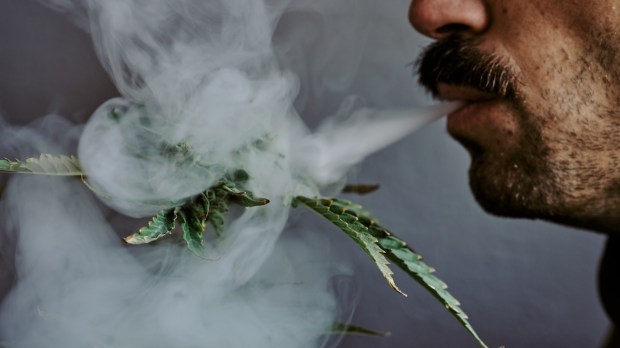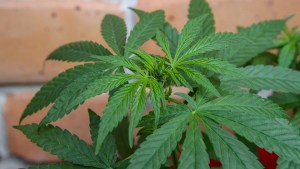Marijuana — “cannabis” to journalists, and “weed” in popular culture — is increasingly taking a central role in American life. In 2024, recreational marijuana will be legal in 24 states.
If you’re like me, this gives you a very uneasy feeling — but you also find it very difficult to argue against. The top 10 reasons to legalize marijuana sound plausible: Regulation will mean more control, and therefore less crime, fewer clogged prisons and court dockets, and less unfair enforcement.
Likewise, it’s hard to answer the moral acceptance of marijuana that most people have: If a couple of glasses of wine are okay, why should marijuana be different? Students at the college where I work tell me that confessors often have a hard time making a moral case against it also.
In November, Denver Archbishop Samuel Aquilla did a great service to the Church in writing “That They May Have Life,” a compelling pastoral letter about marijuana. Here is what I most want to share with college students who struggle with this issue.
First: No, marijuana and alcohol are not the same.
In his heavily footnoted article, Archbishop Aquila makes an excellent point.
THC (Tetrahydrocannabinol) is what gives marijuana its potency; 2.5 to 5 mg of THC is roughly the equivalent of a drink. “The average American has about 3.5 drinks per week, and fewer than 1 in 5 admitted to sometimes drinking ‘too much,’” he wrote. “The typical consumption of alcohol is not binge drinking.”
However, “The limited research available on THC consumption suggests that the typical marijuana user consumers 40 mg of THC at a time.” That’s the physiological (and moral!) equivalent of having 8 to 16 drinks in one sitting. That’s why the Catechism says using it recreationally is a “grave offense.”
The purpose of drinking 3.5 drinks a week is relaxation and communal joy. The purpose of drinking 8 to 16 drinks at one sitting is very different. That’s what cannabis users are doing; and it’s a daily habit for 1 in 5 users.
2: Marijuana is shown to do great harm to users.
Archbishop Aquila cites Center for Disease Control research showing that cannabis users are more likely to suffer from temporary psychosis and long-lasting mental disorders, including schizophrenia. In fact, “Recent research suggests that smoking high-potency marijuana every day could increase the chances of developing psychosis by nearly five times compared to people who have never used marijuana,” says the National Institutes of Health.
Worse: Marijuana’s links to suicide are well documented. In Colorado, suicides of marijuana users have doubled since legalization; in 2019 nearly 1 in 3 suicides in Colorado were marijuana users.
3: But isn’t legal cannabis enriching states, enabling them to do more?
While legal marijuana may give government more tax dollars, it is costly to everyone else.
Archbishop Aquila cites one study that found that, even after factoring in law enforcement savings, “for every dollar gained in tax revenue, Coloradans spent approximately $4.50 to mitigate the effects of legalization.” But while states get all the revenue, others get most of the costs — hospitals, employers, families, and the drug users themselves.
Some of these costs are incalculable: Deaths from cannabis DUI incidents are spiking, and states nationwide are scrambling to find ways to respond.
4: But at least legal marijuana means that casual users are no longer enmeshed in a criminal underworld — right?
Wrong. Archbishop Aquila notes that Colorado and California have seen a massive growth in illegal drug trade. That’s the way this always works. Once you legalize marijuana, illegal marijuana is unshackled, too.
My own quick search of the Los Angeles Times tells the tale in recent stories:
- “The success of illegal cannabis shops and the struggles of legal ones in the heart of L.A.’s Eastside offer a stark illustration of how California’s legalization of marijuana has gone wrong.”
- “‘The War on Drugs Part II’: California taxes, rules are killing small legal weed farms”
- “Illegal cannabis farms are engulfing parts of California and exploiting farmworkers who labor in squalid, deadly conditions, a Times investigation finds.”
- “Killings, robberies, extortion. California can’t stop its booming illegal cannabis stores”
The London Timesreports that there are few penalties for illegal marijuana now. Gangs are doing more drug business than ever, and “the drug trade is fueling homicides and violent crime, both of which are on the rise in California.”
In his pastoral letter, Archbishop Aquila says the trade “also typically supports cartels, which resort to reprehensible means to maintain and increase their market share. These ‘merchants of death,’ as Pope St. John Paul II referred to them, traffic in the ‘freedom of their brothers.’”
5: Tragically, all of this hurts the most vulnerable in society the most.
“We cannot pretend that the legalization and growing cultural acceptance of drugs do not have disproportionate effects on the most vulnerable in our society … for the sake of financial profit,” Aquila writes.
In short, legal marijuana is ensnaring and damaging users, and worsening, not solving, the problem of illicit drugs.


